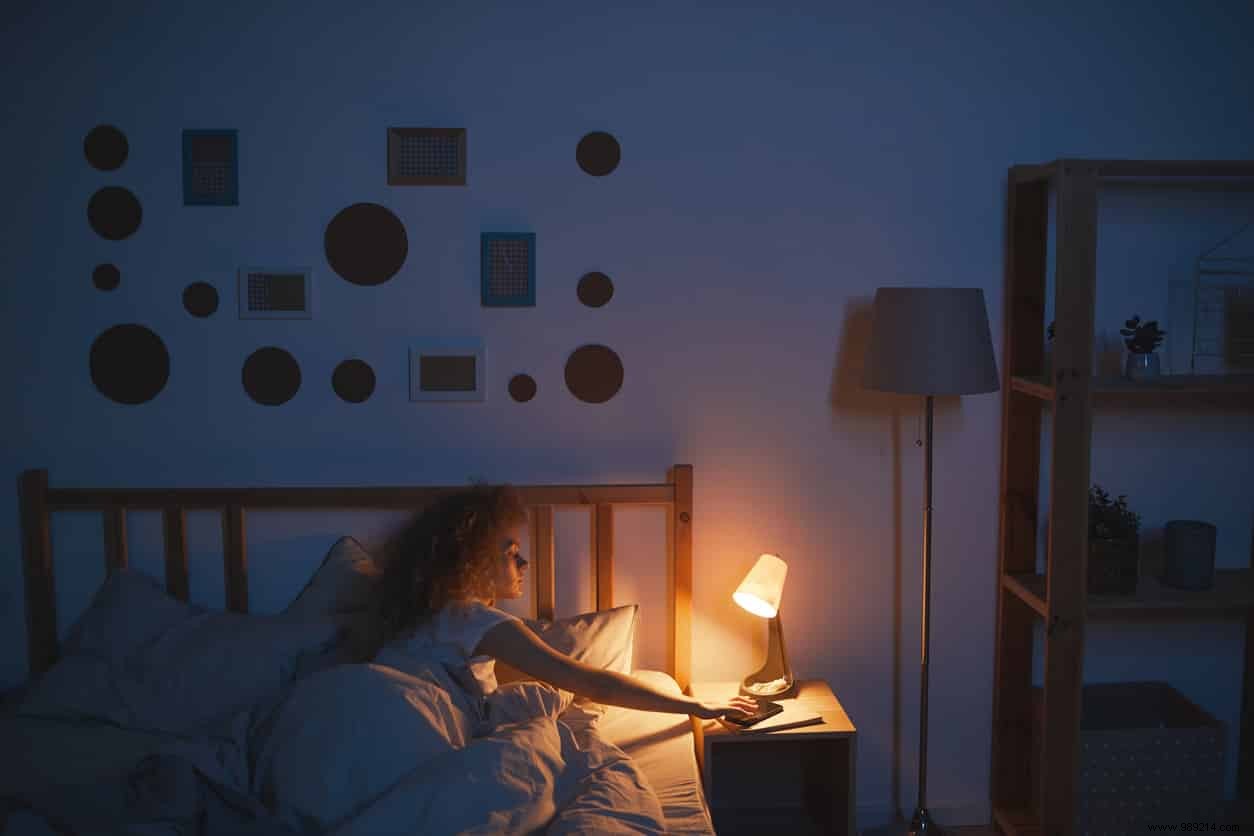Researchers in a recent American study tried to find out whether even a small amount of light could disrupt sleep and thus impact health. The results show that a risk does indeed exist, but that it is slight.
It's nothing new:blue light emanating from different devices such as smartphones and televisions is harmful, especially at bedtime. Specialists therefore advise not to be exposed to screens at least two hours before falling asleep. What if even very dim light could impact sleep? A study conducted by Northwestern University focused on the subject.
In a press release dated March 14, 2022, Dr. Phyllis Zee's team explains that they conducted an experiment on around twenty people. For two nights, these volunteers were exposed to different levels of light :3 lux (low brightness) and 100 lux (moderate brightness). The researchers simultaneously recorded the heart rate of the volunteers, but also their electrocardiogram. Blood samples were also taken to measure their melatonin levels.

The results indicate that even a very small amount of light passing through the eyelids can generate a slight sleep deficit. However, this same deficit may be related to a slight increase in heart rate as well as impaired cell renewal, among others.
Remember that usually, the heart rate decreases during the night to allow the body to rest and regenerate. However, a lit room alters the slowing of the heart rate and this is therefore also true in the case of low light. In addition, various studies have previously pointed out that this could be a risk factor for heart disease .
The study by Northwestern University researchers also shows that the body can resist insulin in a room that is not in total darkness. Insulin is a hormone that the pancreas secretes in order to increase blood sugar levels, causing it to overproduce in the presence of light . Over time, the organ has more and more difficulty producing this hormone, which can promote the onset of type 2 diabetes. Let's also mention the fact that light at night could be a factor of weight gain and therefore obesity.
Thus, the best way to avoid risks is to leave no light sources enter the place of sleep. This also involves protecting yourself from night lights coming from the street (lampposts, etc.) by closing your shutters or drawing the window curtains.